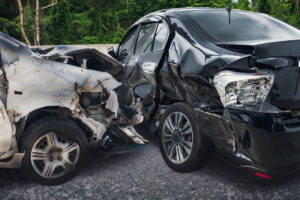Ridesharing services have transformed the way people travel in North Carolina and across the world. With the convenience of summoning a ride at your fingertips, it’s no surprise that rideshare companies like Uber and Lyft have gained immense popularity. However, along with this rise in popularity, there has been an increase in rideshare-related accidents. Understanding the statistics and trends behind rideshare accidents in North Carolina is crucial for both drivers and passengers to ensure safety and responsible practices.
North Carolina Rideshare Accident Statistics
In recent years, rideshare services have witnessed significant growth in North Carolina’s urban centers, such as Charlotte, Raleigh, and Durham. As the number of rideshare drivers and passengers increases, so does the likelihood of accidents occurring. According to the North Carolina Department of Transportation (NCDOT) data, there has been a notable rise in the number of rideshare-related accidents over the past five years.
The statistics show that a considerable portion of these accidents involves minor collisions, property damage, and injuries. Some common causes of rideshare accidents include distracted driving, speeding, failure to obey traffic rules, and driving under the influence. It is essential for both rideshare companies and drivers to address these issues and take measures to improve safety on the roads.
Rideshare Accident Trends
In addition to understanding the numbers, it’s crucial to recognize the trends and patterns that have emerged from rideshare accidents in North Carolina. These trends can help identify potential risks and enable drivers and passengers to take necessary precautions.
- Distracted Driving: Distracted driving, such as using a smartphone while driving, has become a significant concern with the increasing usage of rideshare apps. Drivers often face the pressure to respond to ride requests, navigate unfamiliar routes, and communicate with passengers, leading to distractions that can result in accidents.
- Time of Day: The time of day plays a significant role in rideshare accident trends. Accidents are more likely to occur during peak hours, such as morning and evening rush hours, when traffic congestion is high and drivers may feel rushed to complete more rides.
- Passenger Safety: Ensuring the safety of passengers should be a top priority for rideshare drivers. Although accidents involving injuries to passengers are relatively rare, they can have severe consequences. Adequate vehicle maintenance, proper driver training, and adherence to traffic rules are essential for minimizing passenger risks.
- Alcohol-Related Accidents: Rideshare services have been instrumental in reducing the number of drunk driving incidents. However, some accidents still occur when intoxicated individuals choose to ride with a rideshare driver. It is essential for both drivers and passengers to refrain from consuming alcohol excessively before using the service.
Rideshare Requirements in North Carolina
To address the growing concern of rideshare accidents, North Carolina has established specific requirements and regulations for rideshare companies and their drivers. These requirements aim to enhance safety, protect consumers, and promote responsible practices within the industry.
- Licensing and Insurance: Rideshare drivers must have a valid driver’s license, and appropriate vehicle registration, and comply with minimum insurance requirements set by the state. Additionally, rideshare companies typically provide additional insurance coverage while drivers are actively engaged in a ride.
- Background Checks: Rideshare companies are required to conduct comprehensive background checks on potential drivers to ensure passenger safety. This process helps identify individuals with a history of reckless driving, criminal activity, or traffic violations.
- Vehicle Inspections: Rideshare vehicles must undergo regular inspections to ensure they meet safety standards. This includes checking the brakes, lights, tires, and other critical components to minimize the risk of accidents caused by mechanical failures.
In light of the rising number of rideshare accidents, it is essential for rideshare companies, drivers, and passengers to take proactive steps to prevent accidents and promote safety on the roads. Here are some measures that can help reduce the likelihood of accidents and protect all parties involved:
- Driver Education and Training: Rideshare companies should prioritize comprehensive driver education and training programs. Drivers should receive guidance on safe driving practices, the importance of adhering to traffic laws, and how to handle various driving scenarios, including inclement weather and heavy traffic.
- In-App Safety Features: Rideshare companies can integrate safety features into their apps to enhance passenger security. These features may include an emergency button to quickly connect with emergency services, real-time location sharing with trusted contacts, and driver identity verification to ensure passengers are getting into the right vehicle.
- Vehicle Safety Standards: Rideshare drivers must maintain their vehicles in excellent condition. Regular inspections and maintenance checks should be conducted to ensure that all vehicles used for ridesharing meet safety standards.
- Promoting Responsible Passenger Behavior: Rideshare companies can encourage responsible passenger behavior through in-app prompts or educational materials. This may include reminding passengers to wear seat belts, avoid distracting drivers, and refrain from causing disruptions during the ride.
- Encouraging Rideshare Alternatives: For certain situations, such as late-night travel or long distances, rideshare alternatives like taxis or public transportation may be safer options. Rideshare companies can collaborate with local authorities to promote these alternatives and contribute to overall road safety.
- Partnering with Local Authorities: Rideshare companies should work closely with local authorities to address specific safety concerns and gather data to identify accident-prone areas. This collaboration can lead to targeted safety measures and road improvements.
At Phillips & McCrea, PLLC, we understand the importance of staying informed about rideshare accident statistics and trends in North Carolina. If you or a loved one have been involved in a rideshare-related accident and need legal assistance, our experienced team of personal injury attorneys is here to help. We have a proven track record of advocating for accident victims and ensuring they receive the compensation they deserve.
Don’t wait to take action after a rideshare accident. Contact us today for a free consultation to understand your rights and explore the legal options available to you. Together, we can work towards making North Carolina’s rideshare community safer for everyone.
